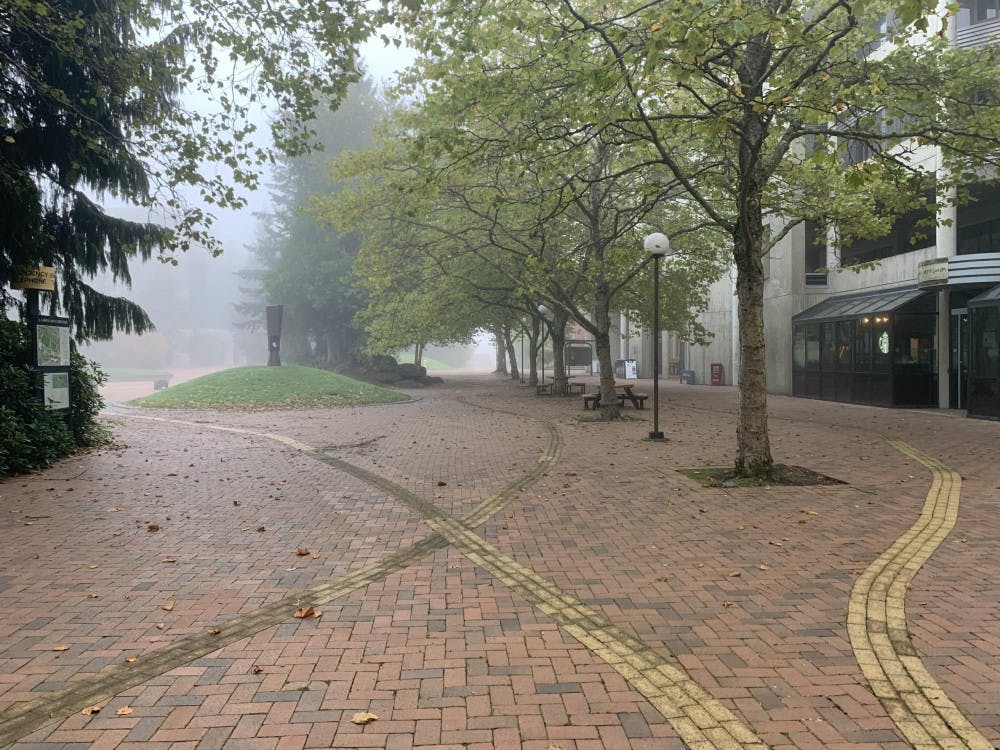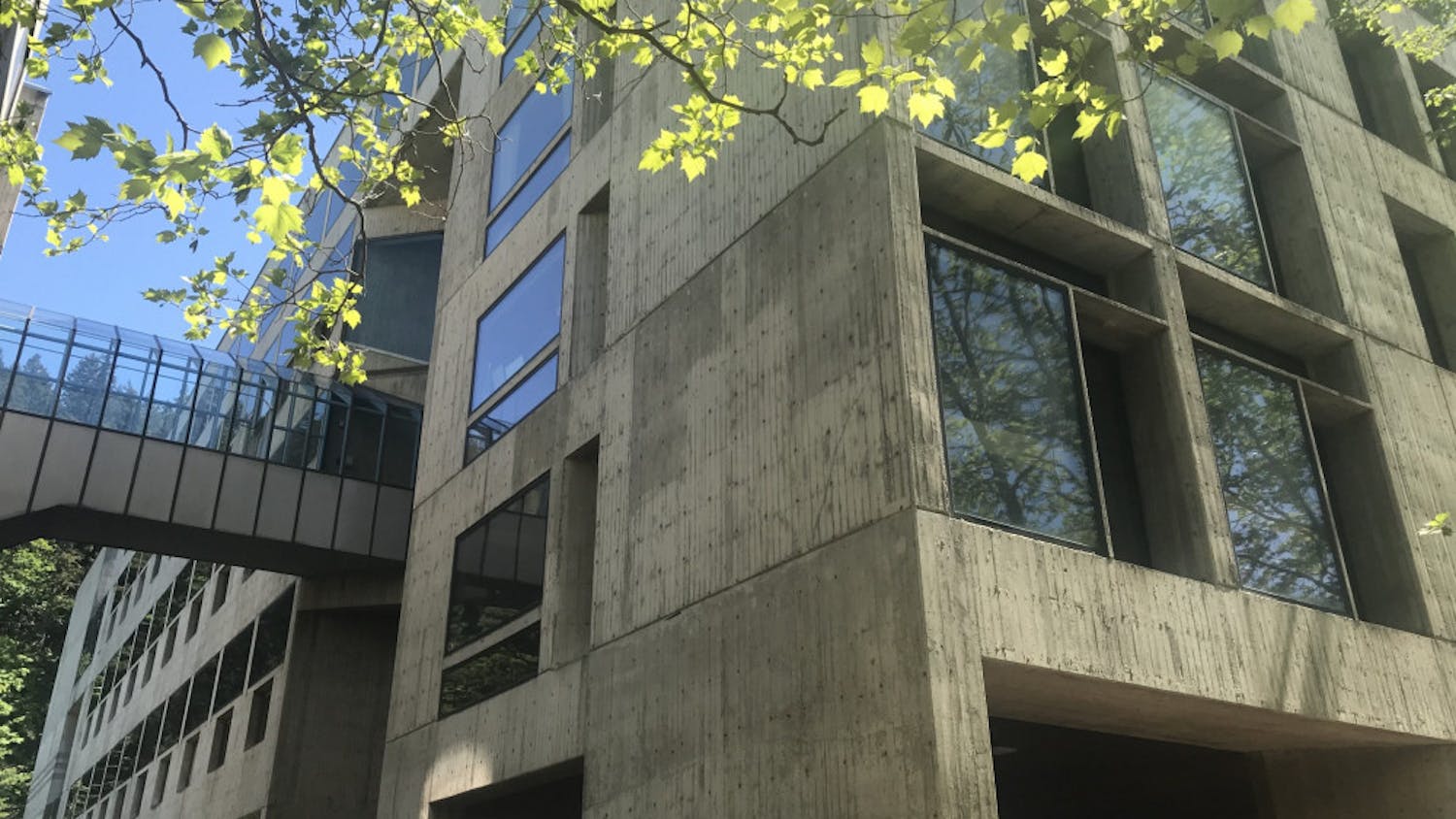On Friday evening, leadership from Western’s Black Student Organization hosted a virtual candidate forum for those running for both the Associated Students Executive Board and the Associated Student Senate.
The event gave the potential 2021-22 student government members a chance to represent their values in the context of anti-Blackness at Western and the role they could play in the dismantling of systemic racism. Specifically, candidates were asked to speak about the demands released by the BSO over a year ago that were directed to the AS Executive Board as well as the university administration.
The forum was performed in a question and answer style, with questions being posed by members of BSO leadership including LaShaiah Dickerson, Mwangi Payton and Lydia Ashenafie. Candidates had to register with the BSO to attend the Zoom session. Of the 44 total candidates, 17 spoke at the forum and one candidate had a representative attend on their behalf. Voting for the AS Executive Board and AS Senate positions is open until May 25 at 4 p.m.
Below is a summary of the questions asked, as well as portions of the candidate's responses. Quotes were lightly edited for clarity.
Disclaimer: Jacob O’Donnell, a candidate running to represent the College of the Environment on the AS Senate, is currently a reporter for The Front. All views expressed in this story are his own.
Questions for AS Executive Board Candidates:
Q: Have you ever had any volunteer experiences helping communities of color (what did you do, where and why)?
Naira Gonzales, running for ASVP for diversity: Gonzales spoke about their experiences volunteering with a program in Eugene, Oregon that teaches immigrants in the area English, as well as her donations to an anti-capitalist daycare and a teaching program in Mexico. They also spoke about their recent efforts. “I have had experience volunteering and helping communities of color more than anything. Recently, I've been doing mutual aid because of school and work and time constrictions,” Gonzales said.
Laura Wagner, running for ASVP for Sustainability: Wagner said that the COVID-19 pandemic has meant that most of her volunteering is online. She highlighted the work she did in high school to progress anti-racism efforts. She also spoke about her participation in Shred the Contract’s letter writing campaign, as well as her efforts to support mutual aid. “Again, I was all about this year, because I am in a position where I don’t have to worry about rent, all about contributing to mutual aid, specifically the COVID-19 Mutual Aid and then the Whatcom Student Mutual Aid,” Wagner said.
Q: What does the word ‘decolonize’ mean to you?
Ankur Handa, running for ASVP for Governmental Affairs: Handa stated that decolonizing to him starts by eliminating a Eurocentric worldview, and reclaiming social and cultural practices. “Like for me, for example, I’m a Sikh,” Handa said. “I should be wearing a turban, but because of like, these Eurocentric Standards, I’ve been called a terrorist many, many times.” Handa added that he’s experienced his temple being vandalized with swastikas as well. “It’s really, to me, to be taking your cultural practices, but also saying that there’s not only one way to view the world.”
Alexis Hunt, running for ASVP for sustainability: Hunt began by explaining how her special education and elementary education majors have led to her thinking about decolonization more. “When things are colonized, it makes it so those disparities continue,” Hunt said. “If we’re able to decolonize, we get it so that everybody is equal, and there is no one perspective that is being a dominant perspective.”
Mallory Schaefbauer, running for ASVP for Activities: “Decolonization, to me, kind of means giving that land and those land practices back to the first people that were here and the first tribes,” Schaefbauer said.
Questions for AS Senate Candidates:
Q: Which of the BSO demands would you be able to implement within your department?
Soriah Clark, running for Student Senator, College of Humanities and Social Sciences: “I would want to be on a campus dining committee so I can support the work of Shred the Contract, because Aramark supports the prison industrial complex,” Clark said. “I would work to support finding an alternative dining solution.”
Kristina Kelehan, running for Student Senator, Graduate School: “Something that I would want to work to accomplish is increasing recruitment and understanding of the [Black, Indigenous and People of Color] community in the graduate school in general, and also finding various ways to include more aspects of BIPOC research within academia,” Kelehan said.
Sofia Larrondo, running for Student Senator, College of Humanities and Social Sciences: “One that stood out the most to me is the fact that the AS Executive Board gets a certain amount of money to go to Washington D.C.,” Larrondo said. “We don't have enough Black counselors in our offices right now as well as we don’t have a lot of Black staff, and I think that that should be one of our priorities, before traveling across the country.”
Daniela Reyes, running for Student Senator at-large: “The demand that specifically stuck out to me was the annual school-wide recognition and celebration of Black History Month, MLK Day and Juneteenth,” Reyes said. “I would love to be able to work with the ASVP for diversity on these things and making it, like, the big deal that it is and should be.”
Q: How do you plan on advocating for Black students in your department?
Anna Hedrick, running for Student Senator at-large: “I would want to really help bring a voice and communicate directly with students who are voicing specific needs and concerns about their education and about their experience here at Western,” Hedrick said. “And to continue talking about these issues so that they're not just a hashtag, it's not just something trending on Instagram. It's something tangible that we can create and we can talk about and try to dismantle the white racism at our school.”
Rukhsar Sadat, representing Rahma Iqbal, who is running for Student Senator, College of Humanities and Social Sciences: “I've been hearing a lot of discussion on how each candidate here in the Senate and in the Executive Board want to push for more Black professors and African American and Black studies,” Sadat said. “My candidate has a direct plan of action that will successfully implement that course of action for that to happen. So basically, my candidate talked about how she will collaborate with the Senate pro-tempore and sit on meetings with the deans of each college — if not with every college within the university, the dean of the college of humanities and social sciences to implement more African American studies into each major within CHSS.”
Questions for all candidates:
Q: How do you plan to advocate on behalf of students to the administration? What strategies could you possibly use?
Glory Busic, running for AS President: “I think being persistent is really important, and holding them accountable,” Busic said. “If I was meeting with Sabah or something like that, being president, being persistent and making sure that the things that students want to see done are constantly being pushed for, and not giving up on them.”
Eric Glen Dawson, running for Student Senator at-large: “I want to make it much more accessible to speak to the members of the Senate, specifically by making my email publicly available,” Dawson said. “I actually did last summer attend a lot of Black Lives Matter stuff, and I’m part of that movement as well.”
Miriam Gold, running for Student Senator, College of Science and Engineering: “When it comes to strategy, simply, that you cannot take no for an answer from the administration, because that will always be their first response to demands by Black students and students of color, is just no,” Gold said. “Part of my strategy is just going to be to not accept the university's denial of what needs to happen.”
Grace Williams, running for ASVP for Governmental Affairs: “I think a large issue that, as a white person, especially that other white people in power need to focus on is educating ourselves,” Williams said. “One of the huge things is educating administrators and students like myself on ‘what is the white privilege?’ and what is going on with Black and other students of color’s experiences.”
Q: How do you plan to hold yourself and your peers accountable in the context of the BSO demands?
Jacob O’Donnell, running for Student Senator, College of the Environment: “I’d really open myself up to criticism and feedback by the Black student community, the BIPOC student community and the whole campus community,” O’Donnell said. “I’m a human being, I’m not perfect, and I also am white, so I may not understand everything. But the thing is, is that I really am committed to learning, I’m really committed to listening and I’m really committed to taking bold action that is in accordance with the people affected.”
Sam Sullivan, running for Student Senator at-large: “I think that people need to see what we're doing,” Sullivan said. “We are here to represent the students, and so I think that we need to engage more. We need to open up more to the campus at large. And, as a senator personally, I would try and open myself up more by really engaging in social media or any other forms that people think is helpful.”
Q: Considering the history of anti-Blackness within the AS, how do you plan on breaking down the anti-Black culture that still exists?
Glory Busic, running for AS President: “I think communication is super important,” Busic said. “So, communicating with students and being completely honest and transparent about that history and talking about how we're working on it. And also admitting, like, if we do something wrong or, just like all of the flaws with the AS, also just being totally honest about that.”
Elijah Rakha-Sheketoff, running for ASVP for Governmental Affairs: “Anything that comes to my desk, whether this is a recommendation for legislation that we're supporting, local issues that we're getting involved in, complaints or ideas for how to better the AS and what's going on at Western or whether it's just emails and communications going on — it’s always going to be transparent and communicated at AS meetings and openly to people, and specifically then directively and proactively with the stakeholders,” Rakha-Sheketoff said.






